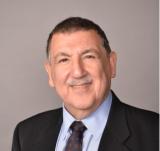Live Grand Rounds: Ethical Issues in Treating LGBTQ Patients

The American Psychiatric Association’s Principles of Medical Ethics emphasize competence, respect and up-to-date knowledge as a basis for appropriate professional behavior toward lesbian, gay, bisexual, transgender and queer (LGBTQ) patients. After providing some definitions of helpful terms, this presentation then reviews historical psychiatric attitudes towards LGBTQ patients that could be construed, at best, as patronizing and, at worst, overtly hostile. In modern clinical practice, as opposed to trying to “cure” homosexuality or “transsexualism,” LGBTQ patients are helped to live their lives according to their own natures and desires. This presentation outlines some common clinical questions raised by LGBTQ patients—what is known and not known about the origins of homosexuality and transgender expression, sexual orientation conversion efforts (SOCE), therapist self-disclosure, how therapists should address LGBTQ patients, and controversies surrounding treatment of transgender children—as well as ethical issues raised in these clinical encounters.
Category
- Ethics/Legal
- Grand Rounds
- LGBTQIA+
Format
- Live Webinar
Credits
- 1.00 ACEP NBCC clock hours
- 1.00 AMA PRA Category 1 Credit™
- 1.00 Category I credits for Social Workers
- 1.00 Psychologists
- 1.00 MNA Contact Hours for Nurses
- 1.00 Participation
Event date May 22, 2024
Live Grand Rounds: Creative Resilience & Aging: Frank Sinatra’s Aging in Rhythm

Frank Sinatra (1915-1998) was among the most admired and influential performing artists of the 20th century, with an approach to rhythm and phrasing that left a deep and lasting impression on all popular singers to follow. At the same time, his public persona and private life were among the most controversial of public figures. This presentation will use images, audio, and video clips to illustrate Mr. Sinatra’s professional journey across six decades, including examination of his lifelong alcohol use and periods of despondency and suicidality. We will pay special attention to how he dealt with his own aging process, including how he continued to tour in concert well into the progressive dementia that would eventually end his career. His story holds rich implications for considering the creative resilience potential in aging, and for the limitations to such resilience posed by illness and functional impairment.
Category
- Geriatrics/Older Adults
- Grand Rounds
- Well-Being
Format
- Live Webinar
Credits
- 1.50 ACEP NBCC clock hours
- 1.50 AMA PRA Category 1 Credit™
- 1.50 Category I credits for Social Workers
- 1.50 Psychologists
- 1.50 MNA Contact Hours for Nurses
- 1.50 Participation
Event date April 30, 2024
Live Grand Rounds: Managing Behavioral and Psychological Symptoms of Dementia (BPSD) In The Era Of Boxed Warnings

Behavioral and Psychological Symptoms of Dementia (BPSD) refers to a group of non-cognitive symptoms and behaviors that occur commonly in patients with dementia. They result from a complex interplay between various biological, psychological and social factors involved in the disease process. BPSD is associated with increased caregiver burden, institutionalization, a more rapid decline in cognition and function and overall poorer quality of life. It also adds to the direct and indirect costs of caring for patients with dementia. Available data indicate efficacy for some non-pharmacological and pharmacological treatment modalities for BPSD. However, recently the use of psychotropic medications for the treatment of BPSD has generated controversy due to increased recognition of their serious adverse effects.
Category
- Geriatrics/Older Adults
- Grand Rounds
- Mood Disorders
- Psychopharmacology
Format
- Live Webinar
Credits
- 1.00 ACEP NBCC clock hours
- 1.00 AMA PRA Category 1 Credit™
- 1.00 Category I credits for Social Workers
- 1.00 Psychologists
- 1.00 MNA Contact Hours for Nurses
- 1.00 Participation
Event date April 25, 2024

 Facebook
Facebook Twitter
Twitter LinkedIn
LinkedIn Forward
Forward